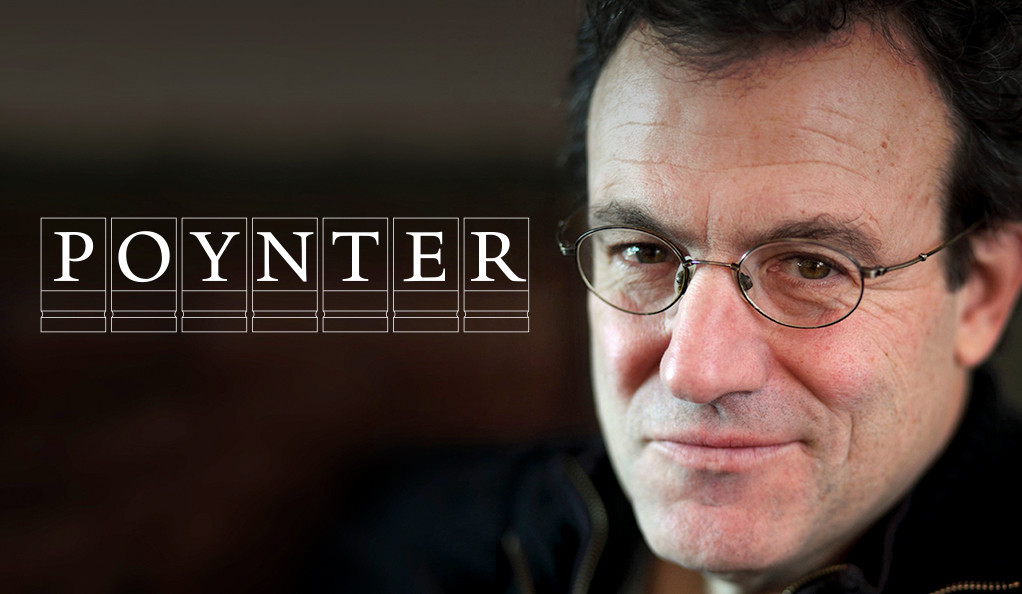
Yale News
Award-winning journalist and NYU Abu Dhabi Professor of Practice of Literature and Creative Writing Charles Siebert stressed empathy in his Tuesday talk on the interrelation between animals and humans.
On Tuesday evening, the award-winning author and contributing writer for the New York Times magazine discussed his unexpected experiences with animals — from parrots to beluga whales and chimpanzees — using excerpts from his books, articles and poetry, shedding light on scientific discoveries, inhumane practices and the importance of empathy. The Law, Ethics & Animals Program at Yale Law School and the Poynter Institute co-sponsored the event, which was titled “What on Earth Are They Saying?” Siebert began by highlighting animals’ innate empathy through a story about one goldfish who helped lift a sick goldfish from the bottom of a pond to its top so that the sick goldfish could easily eat.
“There is this theme of empathy with the goldfish, yet another one of those properties or traits that humans thought was exclusive to us,” Siebert said. “The ability to inhabit the feelings of fellow beings, feel their fear over a threat or thrill … is the source of all emotions, the one without the others would have no register.”
In college, Siebert studied literature and creative writing and received his master’s degree in poetry from the University of Houston. As he began writing poetry for The New Yorker and other publications, Siebert was told to pursue his doctoral degree in poetry because there was “‘no place in the [real] world for a poet.’”
Still, Siebert recalled that after receiving acclaim for an article he pitched to Esquire magazine that later ended up in Reader’s Digest, he was asked a life-changing question by an editor: “Where do you want to go in the world?”
Two weeks later, he was on a plane to the Amazon rainforest, which, he said, was a “pivotal moment” in his career. After that moment, Seibert began writing about chimps and a wide-variety of other animals.
In his slideshow presentation, Siebert later discussed human relationships with chimpanzees, specifically citing Roger the chimpanzee, “a former cellist in an all-chimp orchestra for a Barnum and Bailey circus.” Siebert moved in with Roger and subsequently wrote his book “The Wauchula Woods Accord: Toward a New Understanding of Animals.”
“Never in a million years did I think I would be having stare downs with animals in a jungle,” Siebert said.
Siebert shared the tragic story of a chimp named Lucy, who was raised as a human for 11 years in Oklahoma after being removed from her mother a day after her birth in 1964. Siebert noted that there was a “naiveté” in an attempt to “acculturate” Lucy, as well as other chimps in similar conditions, to human culture. Lucy later died at the hands of poachers, after her caretaker Janis Carter helped her transition for years.
He shared other stories about elephants from Swaziland being shipped to captivity on Flight 805, beluga whales taken captive by the U.S. Navy during their migration from the Arctic to the Hudson Bay and abandoned parrots in Serenity Park in Los Angeles who are paired with “traumatized veterans” in hopes of healing.
Siebert, a self-proclaimed “non-scientist,” said that scientific studies and discoveries into animal communication “allow him to be more poetic.” He described a study that suggested humpback whales had “regional accents,” much like humans do.
Linda Sanacora, the mother of a Yale student and an attendee at the talk, told the News that this was a topic she was not normally interested in, but the talk “helped open up her mind about the relationship between humans and animals.”
“It was really beautiful how Siebert brought together poetry and biology, and also like physics and chemistry,” Gloria Lyu ’23 told the News.
Tracy Zhou ’23 told the News that “as a poet, [Siebert] did an amazing job at bringing us back to the emotion that we’re supposed to feel when hearing these stories.”
“I think Charles Siebert is one of the most magnificent and moving writers about animals today, so we didn’t think twice about inviting him to be a part of this speaker series,” Viveca Morris YC ’15 FES ’18 SOM ’19, the executive director of the Law, Ethics & Animals Program, said. “His work really combines deep humanity and beautiful writing and a keen awareness of science and above all, a very deep attention to the questions of conscious and of consciousness that animals raise, so it was such a great pleasure to have him.
The Law, Ethics & Animals Program at Yale Law School launched in 2019.
Larissa Jimenez | larissa.jimenez@yale.edu







